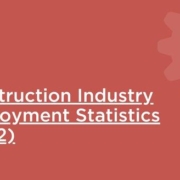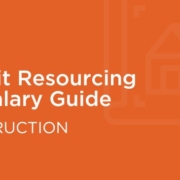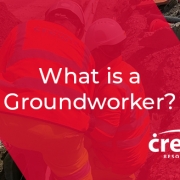Construction Industry Employment Statistics (2022)
The construction industry in the UK is massive. It’s estimated to contribute a GVA of ~£130 billion to the UK economy every year.
This enormity is reflected in the market’s employment, with construction jobs accounting for between 5-7% of all jobs in the UK.
You’ll learn these construction industry employment statistics in this roundup:
- How many people work in construction in the UK
- How many construction job vacancies are there in the UK
- What are the most popular construction jobs in UK
- What regions of the UK have the most construction workers
- How many construction jobs will there be in 2026
So what exactly does employment look like in the construction industry? Let’s take a look at 5 jaw-dropping construction industry statistics:
1. How many people work in construction in the UK?
According to the CITB, there are 2.69 million construction workers in the UK at the start of 2022.
Within them, our estimates suggest 65% are employees of PAYE/VAT registered companies, and 35% of them are self-employed individuals.
The total number of construction workers in the UK is 2% lower than at the start of the coronavirus pandemic.
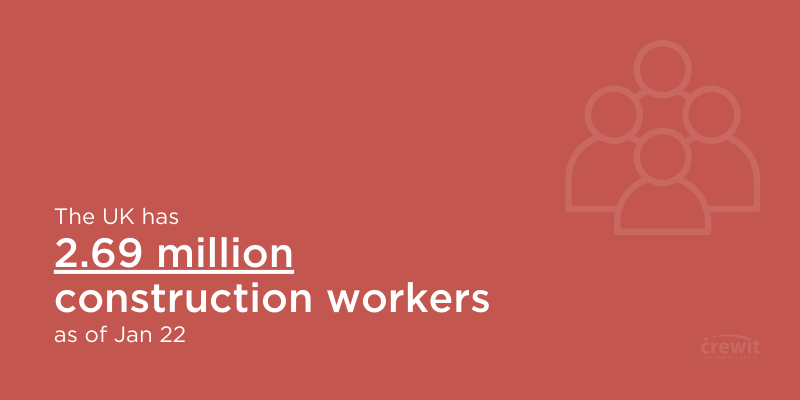
2. How many construction job vacancies are there in the UK?
There are currently more than 45,000 construction vacancies in the UK, representing 3.6% of all open job vacancies in the UK.
Construction vacancies are nearly double the level that they were pre-pandemic, in 2019.
With the recent end to free-movement, the pandemic-fuelled career changes, retirements and emigration, it’s likely that the drive for recruitment is only going to get more competitive.
Companies that think outside the box, fostering innovative programmes such as apprenticeships, will be the ones that can compete in this increasingly-tough recruitment outlook.
| Month/Year | All Industries | Construction | % All Industries |
|---|---|---|---|
| Sept 2012 | 488,000 | 14,000 | 3% |
| Sept 2013 | 548,000 | 14,000 | 2.5% |
| Sept 2014 | 686,000 | 23,000 | 3.3% |
| Sept 2015 | 742,000 | 24,000 | 3.2% |
| Sept 2016 | 754,000 | 21,000 | 2.7% |
| Sept 2017 | 801,000 | 30,000 | 3.7% |
| Sept 2018 | 847,000 | 27,000 | 3.1% |
| Sept 2019 | 820,000 | 26,000 | 3.1% |
| Sept 2020 | 493,000 | 22,000 | 4.4% |
| Sept 2021 | 1,129,000 | 44,000 | 3.9% |
| Sept 2022 | 1,246,000 | 45,000 | 3.6% |
3. What are the most popular construction jobs in UK?
Removing all non-manual jobs (Senior, executive, process, IT, technical and other office based staff), Wood Trades and Interior Fit Out jobs make up the most construction jobs in the UK.
With 244,000 workers, Wood Trades and Interior Fit-Out are the most popular jobs.
Shortly followed by Electric trades and installation workers, who there are around 187,000 of. Then Plumbing and HVAC, with 161,600.
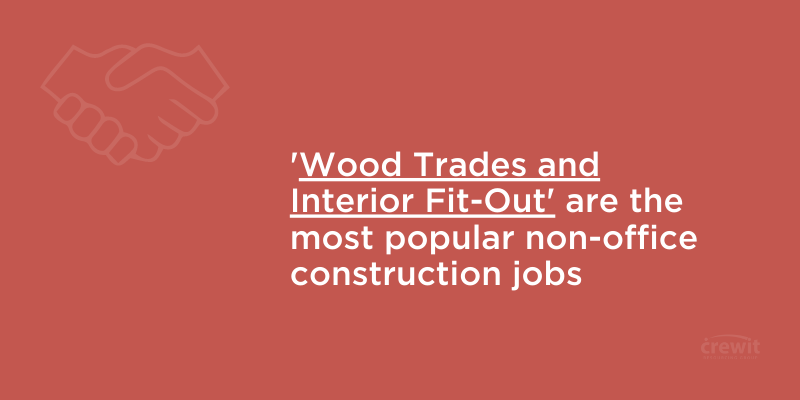
4. What regions of the UK have the most construction workers?
With over 30% of construction firms and employees located there, London & the South East regions have the most construction workers in the UK.
Northern Ireland has the least, with 2% of the total workforce, and Wales and the Northeast only 1% ahead each.
Both demand and requirement is set to increase for every region in the UK by 2026.
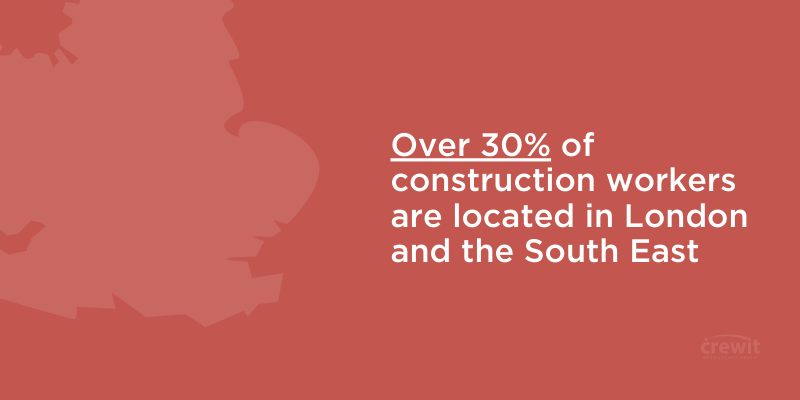
5. How many construction jobs will there be in 2026?
In the CITB’s latest CSN report, they predict that the UK construction industry will require an additional 226,000 workers by 2026.
Of these, the regions with the most increase in required construction workers will be the South West (42,950) and the West Midlands (more than 30,000).
In the report the CITB states “The largest increases in annual demand will be for occupations such as carpenters/joiners and construction managers”.
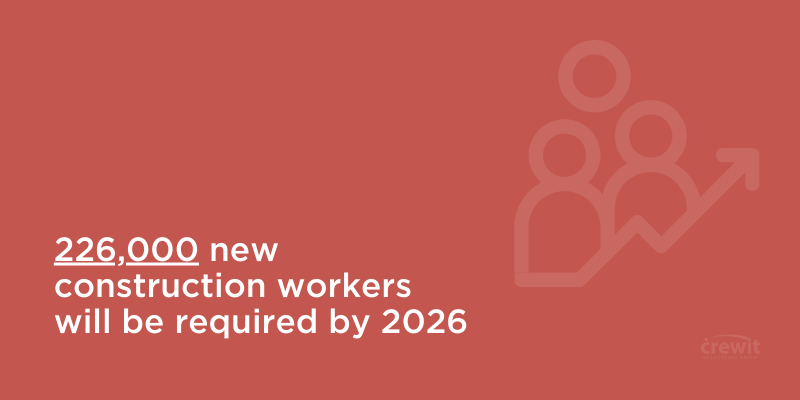
Conclusion
With over 342,000 construction companies in the UK, and a fall in construction companies going insolvent, now seems like a great time to work in the world of construction. Projects such as Hinkley Point C Nuclear New Build, HS2, Gigactories and Brent cross Town prove that construction is only going to grow in coming years.
Find your ideal construction job by visiting our jobs page.
Sources:
https://www.statista.com/statistics/600691/job-roles-in-uk-construction-sector/

